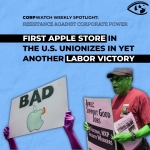JP Morgan Bank Loan for European Super League Goes Up In Flames

Photo by Bicanski
JP Morgan, the Wall Street bank, has drawn condemnation from around the world of football, for agreeing to lend €4 billion for a 20 member European Super League that would effectively devastate the existing system of European football leagues.
The bank offered to give a €200 million to €300 million ‘welcome bonus’ to a dozen or more football clubs that accepted an exclusive invitation to join the new league. In addition these clubs were guaranteed a permanent place that would mean that they would not have to compete every year to avoid being ‘relegated’ ie kicked out of the top division.
Football (known as soccer in the United States) – is one of the highest grossing sports in the world – closely followed by American football, both in terms of player salaries and club values.
But the cancelation of sports tournaments in 2020 due to the coronavirus pandemic has had a major financial impact. An analysis by global accounting firm KPMG estimates that the big European leagues had to forego some £4.5 billionin possible revenue last year. Several clubs are deep in the red: Tottenham owes £604.6 million, Manchester United owes £455.5 million, Juventus's owes €357.8 million, Arsenal's owes £108.2 million while Inter Milan owes €103.9 million, according to Sky News.
“I’m not surprised,” said Nikhil Bahel of Elysian Park Ventures, a venture capital firm that invests in sports, told Al Jazeera. "There is a realization here in Europe that the current financing model for these bodies needs to be revisited.”
"The interest we see from private equity firms and we see from banks in terms of looking at sport as an investment opportunity," Tim Bridge, a director of the sports business group at the Manchester offices of Deloitte accountancy firm, told Yahoo.
The Financial Times reports that the ‘bonus’ would be a loan against future revenues that would carry an interest rate of 2-3 percent. Any club that left the European Super League would have to pay this back. The newspaper also reported that Amazon, Comcast, Disney and Facebook were likely to sign broadcast deals that would be worth some €4 billion a year, double what the current Champions League takes in annually.
For the 12-15 clubs that were expected to become permanent members of the European Super League, the deal would take away the risk of losing money if they has a bad season or were defeated by smaller clubs like Leicester City, which staged a major upset in 2016 when it won the English Premier League earning access to the Champion’s League.
"In the amoral calculus of the banker and the oligarch, there is no longer a need to prioritise fans in stadiums, or the deep local and national stories that have brought them there," writes David Goldblatt, author of The Ball is Round: A Global History of Football and The Game of Our Lives. "Capital is confident that a global digital product will earn more than it loses.”
Indeed many of the top-performing European clubs have been acquired in recent years by billionaires like Paul Singer, CEO of Elliott Management Corporation which owns AC Milan; Stan Kroenke, the owner of Arsenal; Roman Abramovich, the owner of Chelsea; Zhang Jindong, the owner of Inter Milan; the Agnelli family, the owner of Juventus; John Henry, the owner of Liverpool; Sheikh Mansour, the owner of Manchester City; Malcolm Glazer, the owner of Manchester United; and Joe Lewis, the owner of Tottenham Hotspurs.
The billionaire owners of some of the big clubs like Arsenal, Liverpool and Manchester United dislike the relegation system in Europe because it means that they have to invest money into the team to keep it competitive. These owners would prefer a more U.S. style league where they simply have to invest in the branding of the team (think bigger and fancier stadiums) to help increase the value of their initial investment, rather than paying for training and competing with smaller clubs. Others cited growing popularity in video games as a reason to create a “super league” to capture the youth market.
But they did not reckon on the reaction of the legacy football community – which has well over a century of traditions maintained by generations of fans who have supported their local clubs all their lives. "It's war, if you want, from the big clubs," Ralph Hasenhuttl, the manager of the Southampton Football Club, a member of the English Premier League, told the BBC.
The reaction from across the political spectrum was also uniformly negative. Boris Johnson, the British prime minister; Emmanuel Macron, the French president; Keir Starmer, the UK Labour party leader, and even Prince William (who is president of the English Football Association) weighed in to condemn the idea.
Within 48 hours of the launch, the six English clubs (Arsenal, Chelsea, Liverpool, Manchester City, Manchester United and Tottenham) that had accepted an invitation to join, had withdrawn, all but scuppering the plan.
JP Morgan was initially tight-lipped about the whole fiasco. When it was clear that they had no backing, they broke their silence. “We clearly misjudged how this deal would be viewed by the wider football community and how it might impact them in the future,” a company spokesman told the media. “We will learn from this.”
While the fallout might have been a public relations nightmare, it is unlikely to affect the bank's standing as one of the profitable in history, making $36.4 billion in profits in 2019, and $30.16 billion in 2020, pandemic notwithstanding. It is also a bank that has been unafraid of breaking the rules - it has paid some of the biggest penalties ever – a total of $35.819 billion in the last 20 years according to data tracked by Good Jobs First’s Violation Tracker. Wall Street veterans note that it has been charged five times with criminal offenses in the last six years, an unparalleled number for a major bank.
Big though these penalties might be, they rarely make the headlines. Yet every now and then, even the mainstream media wakes up to the news that maximizing profits comes at the expense of others.
"The new league was designed with a single purpose: to extract for wealthy owners a still bigger share of the income," writes Phillip Stephens in the Financial Times. "I still hear people profess themselves perplexed by the rise of populism. There really is no mystery. The insurrections against elites have been rooted in a perception — often a fair one — that the system was rigged. The rich pocketed the gains of globalisation and of technological advance while those lower down the scale were obliged to take on the economic insecurities."


